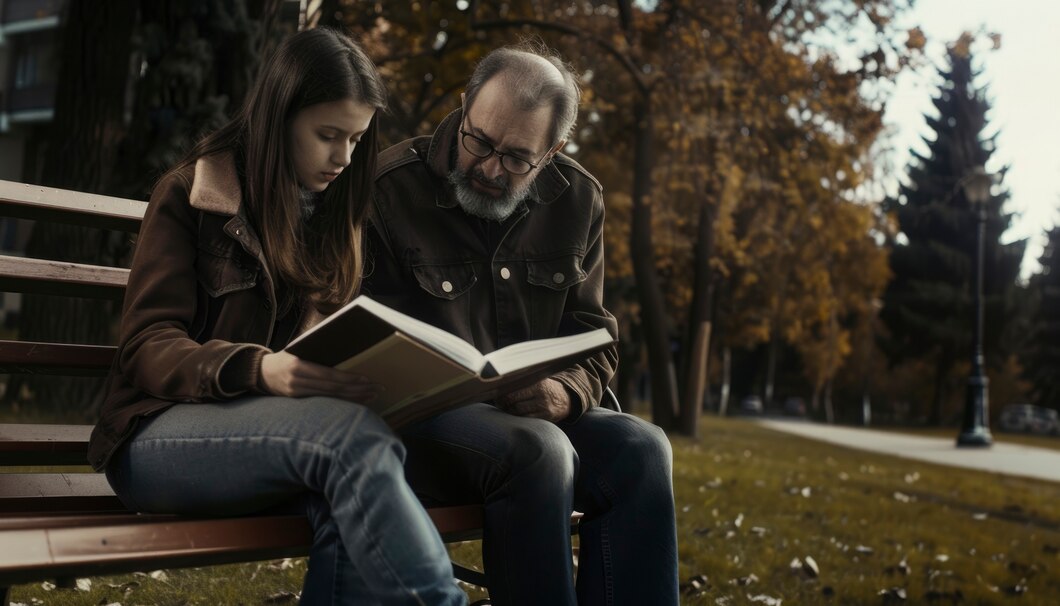Forgiveness is a powerful act that can lead to profound healing and transformation. As humans, we all experience moments of hurt, betrayal, and pain, but the ability to forgive others and ourselves is essential for our emotional well-being and growth. Fortunately, there is a wealth of literature that explores the theme of forgiveness, offering insight, inspiration, and guidance on the journey toward reconciliation and inner peace. In this article, we’ll delve into a selection of books about forgiveness, each offering a unique perspective and valuable lessons on the power of letting go and moving forward.
The Book of Forgiving
Written by Nobel Peace Prize winner Archbishop Desmond Tutu and his daughter Mpho Tutu, “The Book of Forgiving” presents a powerful framework for forgiveness rooted in the African concept of ubuntu, or “I am because we are.” Drawing on their personal experiences and wisdom, the authors guide readers through the fourfold path of forgiveness: telling the story, naming the hurt, granting forgiveness, and renewing or releasing the relationship. Filled with poignant anecdotes, practical exercises, and profound insights, this book offers a compassionate and transformative approach to forgiveness that extends beyond personal healing to healing our communities and the world.
Forgiveness
In this memoir, Mark Sakamoto shares the remarkable story of his grandparents, Mitsue and Ralph, who endured immense suffering and injustice during World War II but ultimately found the strength to forgive and rebuild their lives. Mitsue survived internment in a Canadian internment camp for Japanese Canadians, while Ralph served as a prisoner of war in a Japanese POW camp. Through their experiences of loss, trauma, and reconciliation, Sakamoto explores the power of forgiveness to transcend bitterness and resentment and foster healing and resilience. This poignant and deeply personal narrative reminds us of the profound impact forgiveness can have on individuals, families, and communities.
Forgiving What You Can’t Forget
In “Forgiving What You Can’t Forget,” bestselling author and speaker Lysa TerKeurst offers a practical and compassionate guide to navigating the journey of forgiveness, particularly in the face of deep betrayal and trauma. Drawing on her own experiences of marital infidelity and the process of rebuilding trust and healing, TerKeurst provides readers with practical strategies, biblical wisdom, and heartfelt encouragement for letting go of past hurts, releasing resentment, and embracing a future filled with hope and possibility. This book offers a roadmap for finding freedom from the pain of the past and reclaiming the joy and peace that comes with forgiveness.
The Forgiveness Project
“The Forgiveness Project” is a collection of powerful and inspiring stories of forgiveness and reconciliation from around the world. Compiled by journalist Marina Cantacuzino, this book features interviews with individuals who have experienced profound acts of forgiveness in the face of unspeakable atrocities, including survivors of violence, war, and injustice. Through these deeply personal narratives, Cantacuzino explores the transformative power of forgiveness to break the cycle of violence, promote healing and reconciliation, and build bridges of understanding and compassion. This thought-provoking and uplifting book offers hope and inspiration in a world often marked by division and conflict.
The Sunflower
In “The Sunflower,” Holocaust survivor Simon Wiesenthal grapples with the complex and contentious question of forgiveness in the aftermath of unimaginable evil. The book begins with Wiesenthal’s account of being summoned to the bedside of a dying Nazi soldier who seeks forgiveness for his crimes against humanity. Wiesenthal wrestles with the moral and ethical implications of granting forgiveness to someone who has perpetrated such heinous acts, ultimately leaving the decision to a diverse group of scholars, theologians, and thinkers. Their responses, along with Wiesenthal’s reflections, prompt readers to confront their own beliefs and convictions about forgiveness, justice, and the human capacity for redemption.
Conclusion
Books about forgiveness offer profound insights, inspiration, and guidance on the journey toward healing, reconciliation, and inner peace. Whether through memoirs, practical guides, or philosophical reflections, these books invite readers to explore the transformative power of forgiveness and the possibilities of redemption and renewal. By engaging with diverse perspectives and personal narratives, we can deepen our understanding of forgiveness and cultivate compassion, empathy, and resilience in our own lives and communities.










